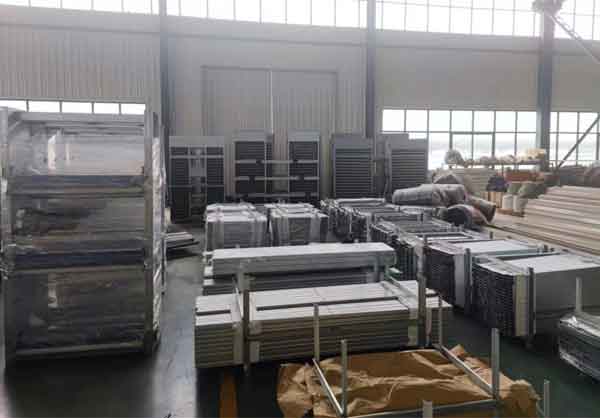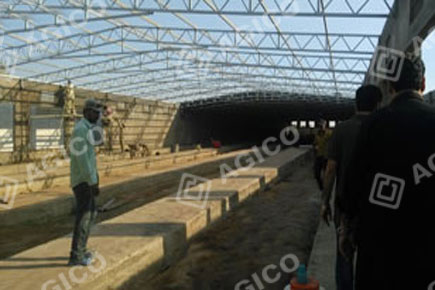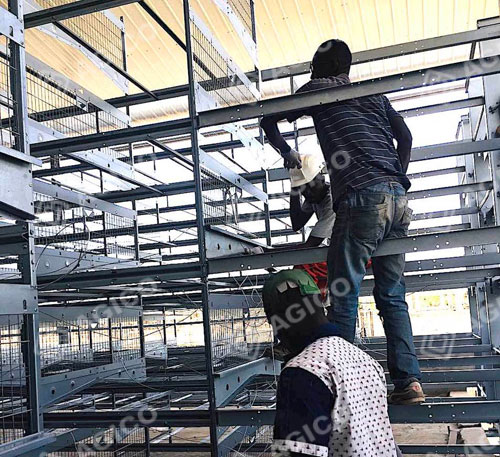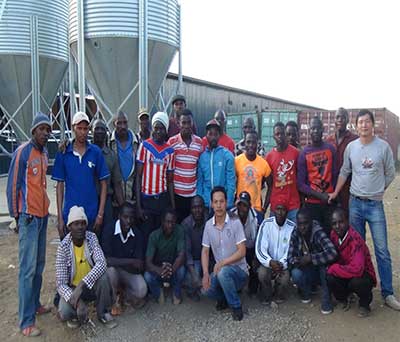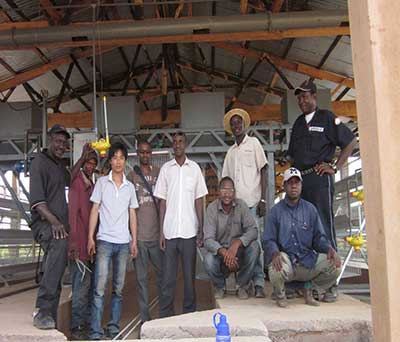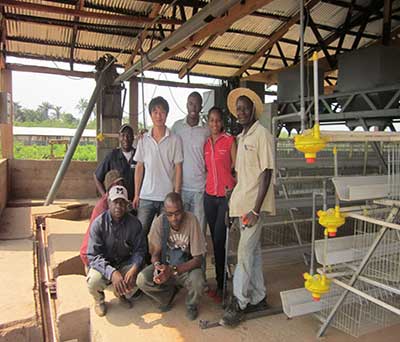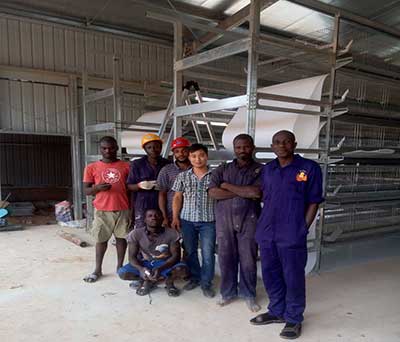Issues about Chicken Cages
If you’re a farmer or a homesteader, raising chickens is a rewarding and fulfilling experience. However, it’s essential to ensure that your flock is healthy, happy, and comfortable. One of the most important factors in achieving this is providing them with adequate housing, which is where chicken cages come in.
In this article, we’ll cover everything you need to know about chicken cages, including their benefits, types, and common issues that arise.
Types of Chicken Cages
There are several types of chicken cages, and the one you choose will depend on your specific needs and preferences. Some of the most common types include:
Battery cages – These are the most commonly used cages and are usually found in commercial chicken farms. Battery cages are small, cramped wire cages that provide very little room for movement. They are known for causing physical and psychological stress in chickens.
Free-range cages – Free-range cages provide more space and allow chickens to move around freely. They are usually built in large enclosures that have an open top and are covered with wire mesh to protect the chickens from predators.
Barn cages – Barn cages are similar to free-range cages, but the chickens are housed in a barn instead of an enclosure. They have more space than battery cages but less than free-range cages.
In addition to battery cages, there are other types of cages commonly used in commercial chicken farming. Free-range cages and barn cages provide more space and a better living environment for chickens. Free-range cages allow chickens to move around freely in large enclosures while barn cages house chickens in a barn with more space than battery cages but less than free-range cages.
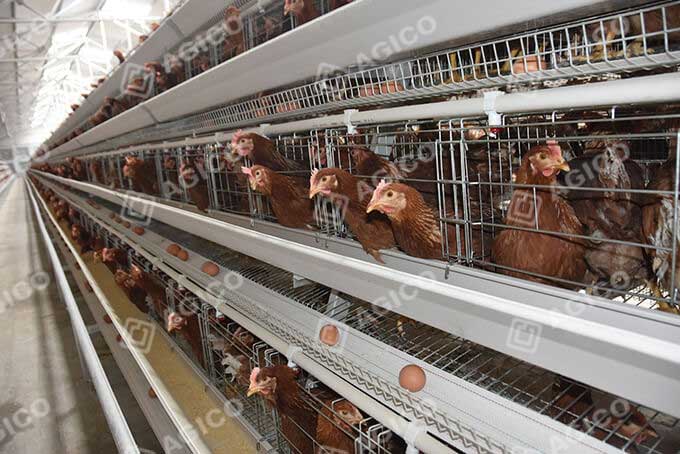
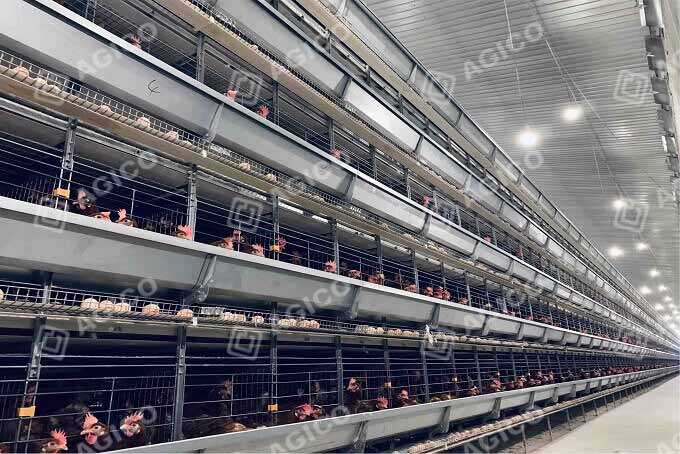
Benefits of Chicken Cages
While there are some controversies surrounding chicken cages, they do have several benefits. Some of these include:
Protection from predators: Chicken cages provide a safe and secure environment for chickens to live in. They are designed to protect chickens from predators like foxes, raccoons, and snakes.
Increased egg production: When chickens are housed in cages, it is easier for farmers to monitor their feed and water intake, which can lead to increased egg production. This is because chickens are less likely to become stressed or sick when they are in a controlled environment.
Improved hygiene: Chicken cages help to improve the hygiene of the environment that the chickens live in. This is because the cages can be easily cleaned and disinfected, which reduces the risk of disease transmission between birds.
Better organization: Chicken cages can help farmers to organize their flocks more efficiently. When chickens are housed in cages, it is easier to keep track of individual birds, which can be useful for breeding or culling purposes.
Reduced aggression: Chickens can be aggressive towards each other, particularly when they are in a confined space. By housing chickens in cages, it is possible to reduce the amount of aggression and fighting that occurs between birds.
Healthier birds: When chickens are housed in cages, they are less likely to contract diseases or parasites from other birds. This is because the cages provide a barrier that prevents direct contact between birds.
Reduced feed waste: When chickens are housed in cages, it is easier to monitor their feed intake. This can help to reduce feed waste, which is better for the environment and can save farmers money in the long run.
Overall, chicken cages provide several benefits for both chickens and their owners. They provide a safe and secure environment, help to improve hygiene, increase egg production, and reduce aggression between birds. Additionally, chicken cages make it easier for farmers to monitor their flocks and reduce waste.
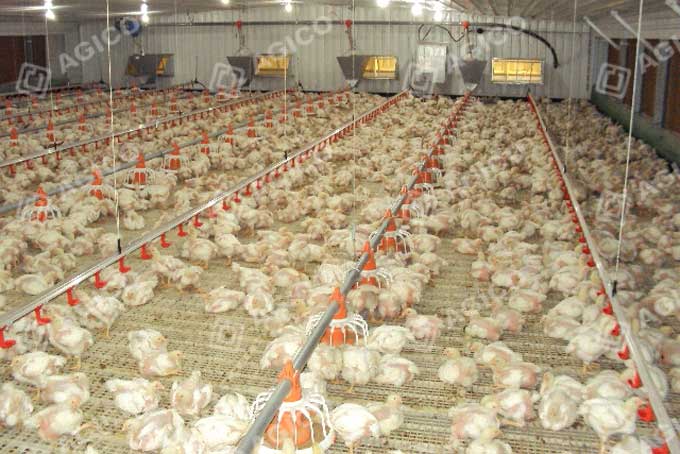
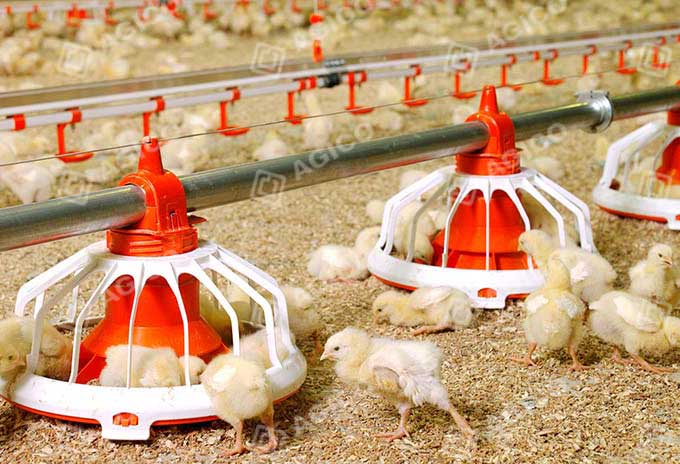
Common Issues with Chicken Cages
Despite their benefits, there are some common issues that arise when using chicken cages. These include:
Overcrowding – Many commercial chicken farms use battery cages that are small and cramped, leading to overcrowding. This can cause physical and psychological stress in chickens, which can lead to health problems and reduced egg production.
Lack of exercise – Battery cages provide very little room for movement, which can result in a lack of exercise for your flock. This can lead to health problems and reduced egg production.
Waste management – Chicken cages require regular cleaning and waste management to prevent the buildup of droppings, which can attract pests and cause health problems for your flock.
Social interaction – Chickens are social animals and need to interact with other chickens to be happy and healthy. Battery cages provide very little opportunity for social interaction, which can lead to psychological stress in your flock.
In summary, chicken cages can be a useful tool for keeping your flock safe, healthy, and productive. However, it’s essential to choose the right type of cage for your specific needs and to be aware of the common issues that arise. By doing so, you can provide your flock with a comfortable and healthy environment that will lead to happier chickens and more eggs.

